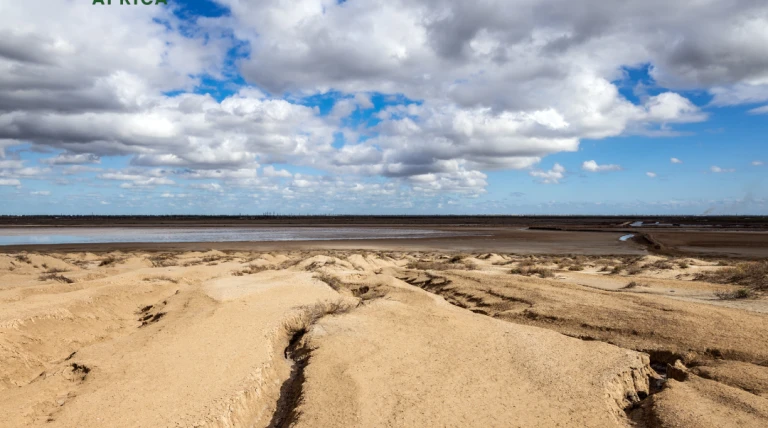
The Last Rainmaker of Mbale
In the eastern highlands of Uganda, where the slopes of Mount Elgon cradle the fertile lands of Mbale, the seasons once spoke in rhythm with the people’s lives.
Rains would come in March like clockwork—soaking the red earth, swelling rivers, and waking seeds buried in the soil. But something changed.
A Legacy of Listening to the Land
The story begins with Amina, a sixteen-year-old girl from Bumasheti village. She grew up watching her grandmother, Nalongo, revered in the community as a rainmaker—not through magic, but through deep knowledge of the land, weather patterns, and native plants.
Nalongo would read the clouds, listen to the birds, and study the behavior of ants before advising when to plant millet or maize. She carried stories from the ancestors about the sacred connection between people and nature.
But by the time Amina turned twelve, Nalongo’s predictions began to fail. The rains delayed. Sometimes they never came. Other times, they arrived in destructive torrents, washing away crops, homes, and hope.
One night, Amina asked, “Why doesn’t the earth listen anymore?”
Nalongo replied, “It’s not that the earth doesn’t listen. It’s that we’ve stopped listening to it.”
A Land in Crisis
Forests in Mt. Elgon National Park were being cleared for timber and farmland. Wetlands were drained. Sugarcane plantations crept up the hillsides.
Mbale, like much of Uganda, was grappling with the impacts of climate change.
Droughts lasted longer.
Rivers like Manafwa and Sironko shrank or flooded unpredictably.
Coffee harvests were destroyed by erratic weather.
Then came the landslides.
A Youth Leader Rises
In May 2020, heavy rains triggered a landslide in Bududa District. Amina, now a community volunteer with a local youth climate action group, joined the rescue efforts. She watched as homes were buried and families shattered.
A survivor told her, “This isn’t just the mountain’s anger. It’s the echo of our negligence.”
That moment changed Amina forever.
She began to organize—first at her school, then across her district. Together with other youth, she:
Led tree planting drives, focusing on indigenous species like Prunus africana and Markhamia lutea.
Restored wetlands, removing invasive eucalyptus trees.
Taught climate-smart farming (agroforestry, permaculture, composting).
Promoted fuel-efficient stoves to reduce deforestation.
From Mbale to the World
Despite setbacks—corruption, political resistance, and cultural pushback—Amina’s voice grew stronger. At a regional youth forum in Kampala, she stood before leaders and declared:
“We cannot speak of development while choking the lungs of our land.
Climate change is no longer a warning. It is a lived experience—one that kills, displaces, and impoverishes.
And if Uganda’s future lies in the hands of the youth, we must be given the tools, the voice, and the space to build it sustainably.”
Her speech went viral.
In 2023, Amina was invited to COP28 as part of Uganda’s youth delegation. She shared stories from Mbale:
The rains that no longer listened
The landslides that buried friends
The fight for resilience in forgotten villages
She called for:
Climate financing that reaches local communities
Education systems that include environmental literacy
International carbon justice
🌍 Planting the Future
Back in Bumasheti, something remarkable happened. Inspired by Amina, the village elders agreed to create a community green belt—a buffer zone of reforested land to protect against landslides and erosion.
The youth took charge, using simple mobile apps to track tree health and rainfall.
Nalongo, now frail, smiled as Amina led children to plant the 10,000th tree.
She whispered, “The earth is starting to listen again.”
A Crossroads for Uganda
Today, Uganda stands at a crossroads. One path promises oil and infrastructure. The other holds a different kind of wealth—rivers, forests, ancestral knowledge, and climate resilience.
Amina knows the fight isn’t over. But she believes in the power of stories like hers to inspire action.
Sustainability isn’t a foreign agenda.
It’s an ancestral one.
In the rustling of new leaves in Mbale’s highlands, you can almost hear the voice of the last rainmaker. And in Amina’s footsteps, you see the rise of the next generation.
Source : By Muyanja James
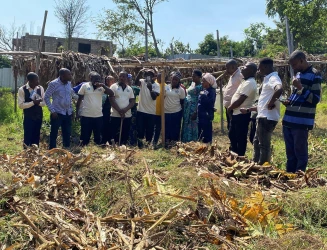
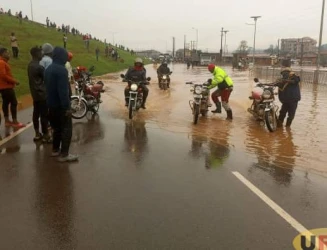
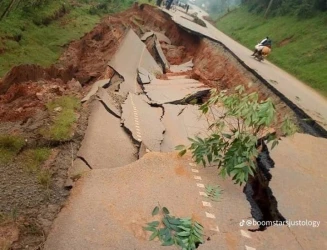
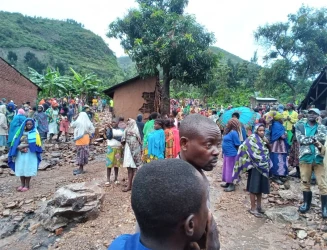
this message is awosome